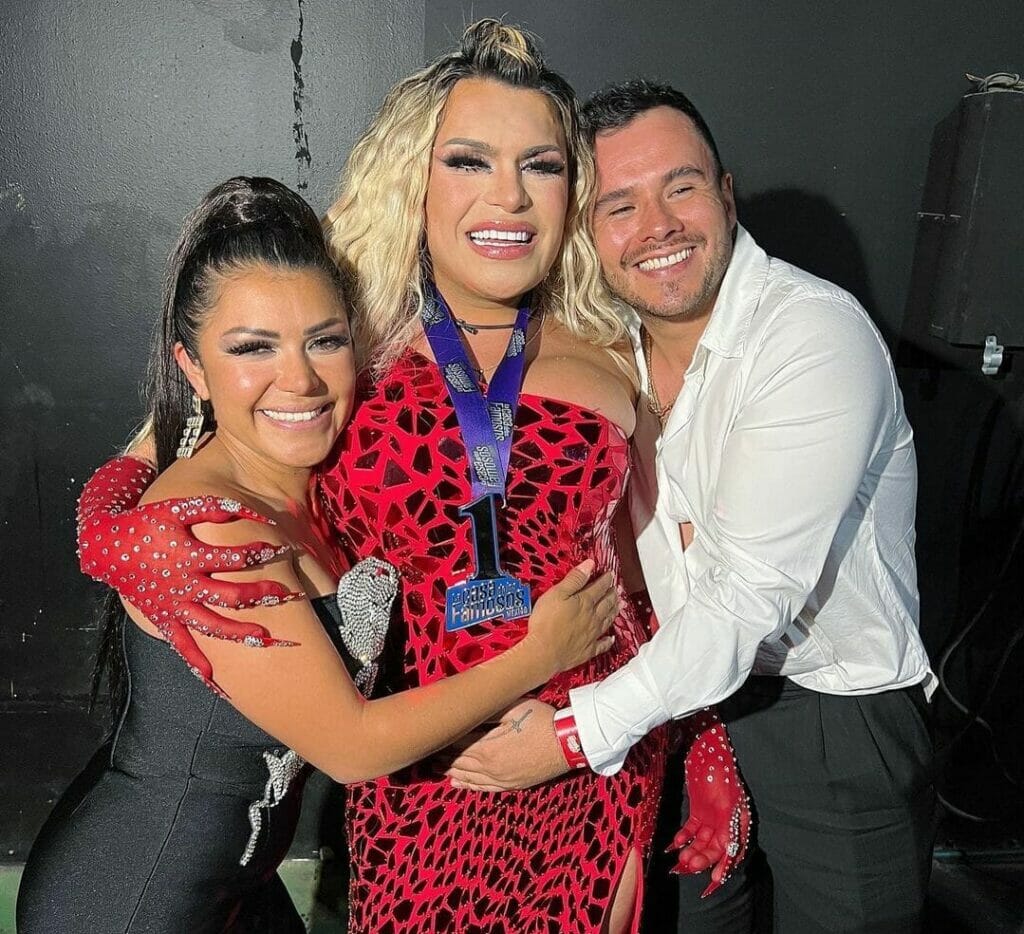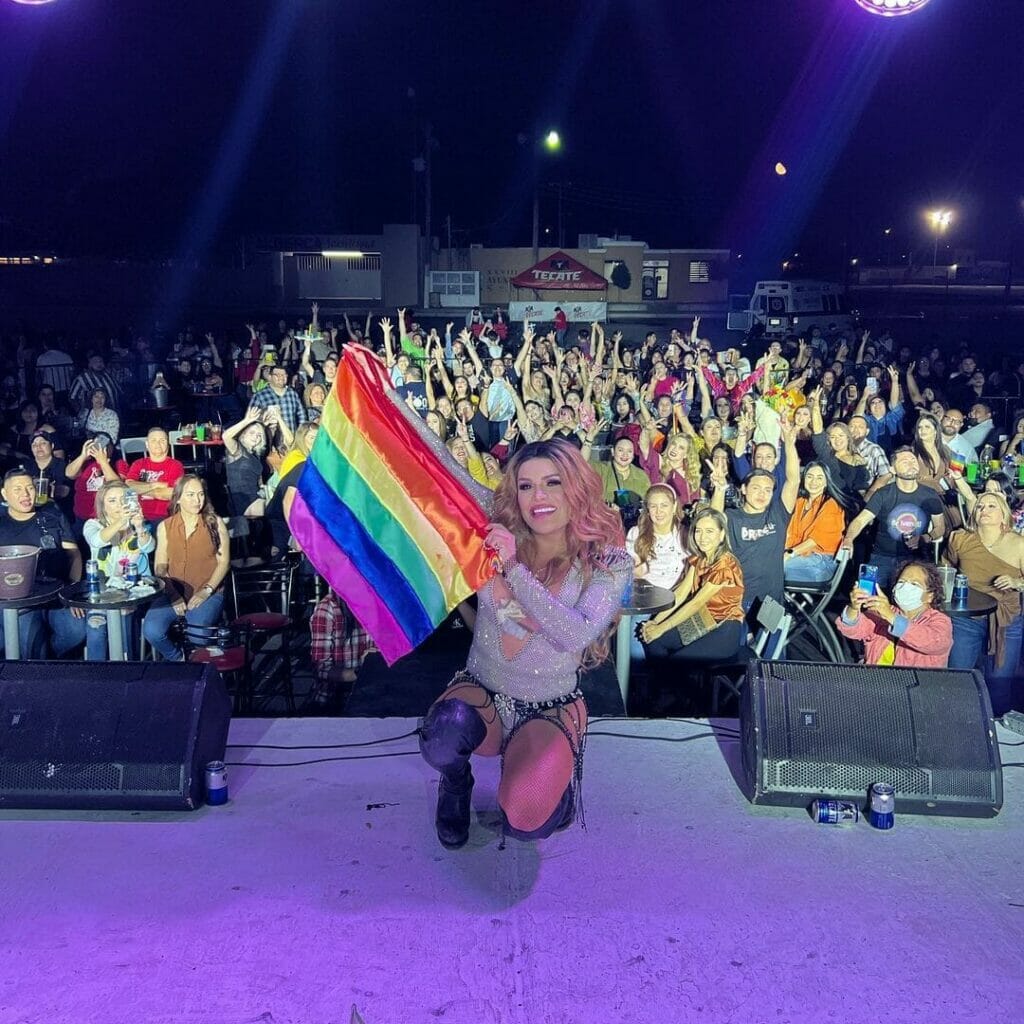 GLAAD contributor Enrique Torre Molina is a diversity, inclusion and LGBTQ+ community activist, speaker and consultant working with companies, nonprofit organizations, government agencies and media. He co-founded Colmena 41, co-hosts the “Mafia Gay” podcast and lives in Mexico City.
GLAAD contributor Enrique Torre Molina is a diversity, inclusion and LGBTQ+ community activist, speaker and consultant working with companies, nonprofit organizations, government agencies and media. He co-founded Colmena 41, co-hosts the “Mafia Gay” podcast and lives in Mexico City.
LEER EN ESPAÑOL
On Sunday night August 13th, 21 million people witnessed a very rare scene on Mexican television: a 30-year-old trans woman, Wendy Guevara, cried with joy as she hugged her family, celebrating the fact that she had just won TelevisaUnivision’s La Casa de los Famosos. The format, based on Big Brother, puts 14 celebrities and influencers in a house equipped with 50 cameras and 60 microphones with a 24-hour livestream and almost no contact with the outside world. During the show’s 71-day run, Guevara became a sensation thanks to her charisma, good vibes, bawdy jokes, honesty, sense of humor and extraordinary talent for talking on camera. Viewers responded and she received a whopping 18.2 million votes from the audience.

In addition to capturing hearts, Guevara took home a prize of 4 million pesos (approximately $233,967) and became the first trans woman to win a reality show in Mexico. “I had never seen a trans girl on a reality show” is perhaps the phrase that she has repeated the most on social media and interviews since she left the house. That’s not surprising in a country with so much anti-trans violence. Just last year, there were 34 transfeminicides and life expectancy for trans women is only 35 years.
Guevara’s path to fame was unconventional. Before this project, her face and name weren’t popular beyond social media, where we first met her through a 2017 viral video in which she and her friend Paola Suárez said two men had taken them out for a ride and drinks, but left them alone on a hill. She became “the joy that this country needed,” as writer-director Joserra Zúñiga put it, and I hope that decision-makers on television find lessons in Wendy’s case.

Whenever an LGBTQ+ person or character appears in the media, we debate how representative they are of the rest of our community. And Wendy’s story coincides with the majority of trans people in Mexico: she knew what her gender identity was as a child (62.4% recognize it before the age of seven, according to INEGI, the National Institute of Statistics and Geography), she did not finish elementary school (according to activist Kenya Cuevas, that is the reality of 80% of trans women) and, eventually, as she herself has said, she received love and acceptance from her parents (as is the experience of 83.5% of trans people according to INEGI). Thanks to her visibility, today millions of people in Latin America are familiar with the reality of other Wendys.

How has the trans community reacted? The actress and host Alejandra Bogue believes that “Wendy is a phenomenon. It’s La Casa de Wendy“. For doctor Daniela Muñoz, founder of the first national clinic that specializes in trans health issues, “her triumph shows a country that is improving.” Legislator Salma Luévano said that she represents “simplicity, friendship, sisterhood and shows that love breaks down barriers.” Influencer Mauro Alessandri wants people to start “feeling that same empathy with the Wendys on the streets, at clubs, in your families and at work.” Businesswoman Roshell Terranova hopes “that this victory for Wendy will generate more equality for everyone.”
Human rights defender Ari Vera thanked her for supporting the organization Almas Cautivas. The Association for Transgender Children celebrated that her visibility contributed to understanding “that gender identity is lived since childhood and does not change even if you are prohibited from expressing it… that sex work is work… that the only person who should decide over your body is yourself.”

The LGBTQ+ digital platform Abrazo Grupal expressed it best when they wrote: “Her resistance is admirable, but people should not come to the world to resist..” I hope that Guevara will not become the lone representative of the LGBTQ+ community or be weighed down with unrealistic expectations of being an impeccable spokesperson. Instead, I hope her visibility is multiplied and that Mexico’s LGBTQ+ community enjoys more media representation, so that, as Ari Vera told Colmena 41, trans people feel less shame and more pride.













